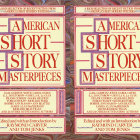Myths About Lit Mags — With Becky Tuch, Founding Editor of The Review Review
This week, I asked Becky Tuch to respond to some common misconceptions about literary magazines. Here are her responses.
1. No one reads them.
Literary magazines may not have a mainstream audience. But they do have a very specific and enthusiastic audience. Their readers are poets, lovers of the short story, admirers of flash fiction, lusters for the lyric essay. That’s not most people; it’s a minority. But it’s a valuable and passionate minority.
If you go to a conference like AWP, if you talk to other writers, if you read interviews with literary agents, if you do a search for “literary magazines” on Twitter, if you eavesdrop on conversations at writing residencies, what you’ll find is that many people do in fact read literary magazines. What’s more, they enjoy reading them and look forward to new issues when they arrive on the shelves and online.
2. Anyone can start one.
This may be true. But can anyone maintain one? Starting a lit mag is fun and thrilling. It has all the buzz-and-tingle of a new relationship. But to stay in it for the long haul, to commit to the project after the buzz has worn off and the real work sets in, to see it through the periods of financial duress, working nights, weekends, making sacrifices in your life to keep the project afloat—that requires deep commitment and stamina. It’s not for everyone. For those who do it, let’s tip our hats.
3. Editors don’t actually read all the submissions.
To say editors don’t read every submission seems tantamount to saying novelists don’t write every word in their books, or pianists don’t play every note in their concertos. Editors want to find good stories, poems, and essays. That’s their job. That’s their love.
It’s true that at some larger magazines, a handful of trusted readers will screen the stories before passing them up to editors. It’s also true is that if a story hits a wrong note within the first paragraph, a busy editor or reader may not read much beyond that. But if you send your work out to a magazine, there is always a human being on the receiving end, and your work will be read.
4. Lit mags don’t pay.
Are we talking about dollars here, or intangibles?
For dollars, there are dozens of literary magazines that pay their contributors. We have a nifty list of these here. You can also visit Duotrope and find more.
As for intangibles, publishing credits help when applying for grants and residencies, on job applications, if you want to be on a panel at a writers’ conference, and when you query literary agents. Plus, the connections writers make with editors is still invaluable. After having a story accepted, you might be asked to be a contributing editor at a journal, a guest blogger, a reader at an event, or you might be interviewed on the journal’s website or in one of their print issues. Thus the non-financial and indirectly-financial rewards can be pretty great.
5. Lit mags only publish well-known/established writers.
Wouldn’t you love to come across the first-ever submission by David Foster Wallace? To find a story by a never-before-published Joyce Carol Oates? To be the one who discovered James Baldwin in the slush pile? Discovering great new voices is what editors love to do.
That said, it’s good to be realistic. Lit mags need to sell subscriptions so naturally the editors want to get some heavyweights in their issues too. And, of course literary heavyweights might have agents who proofread their work, publishing-house editors who have given them feedback over the course of their careers. Established writers also often have the added advantage of decades of experience compared to newer writers trying to break in. So, it ain’t a cake-walk for new writers, particularly in the most competitive and prestigious journals. But it’s not impossible either.
6. There are too many lit mags to read them all.
That is the truth. But the myth is that you have to read all of them. If you want to publish in lit mags, you should familiarize yourself with as many as you possibly can. Then, of the ones with which you are familiar, a good method is to have about fifteen that you know well. If you are a writer and can talk about fifteen lit mags that you enjoy, admire, read regularly and submit to, then you’re in good shape. I talk more about this in an article, “The Submitter’s Dilemma: Choosing the Right Literary Magazine for Your Work.”
Plus, here’s a tip: If you want to read a lot of lit mags for free, become a reviewer!
7. Online lit mags are less credible than print magazines.
This might have been true about ten years ago. But these days, there are just too many good online journals for this statement to remain true. Look at Memorious. Look at Drunken Boat. Look at Wag’s Revue, The Drum, The Good Men Project, Blackbird, Cerise Press. These are solid, reputable magazines, many of whom have seen their contributors published in anthologies like Best of the Net and the Pushcart Prize. Presently, any writer who publishes online ought to be proud.
8. Lit mags don’t matter.
Don’t matter to whom? Don’t matter for what?
I’ll tell you, there is an essay from Granta that I read years ago and which I still think about every single day. There is a discussion forum in The Boston Review from which I still quote in conversation. There is one poem that I read in Beecher’s many months ago, which flits through my mind constantly. Certain stories from Zoetrope are ongoing models for me in my own writing. In 2008, I read a short story in The Kenyon Review that was the impetus for me launching a lit-mag review site in the first place.
I receive hundreds of lit mags in the mail—Gargoyle, Versal, Ploughshares, Colorado Review, Green Mountains Review, The Point, Hayden’s Ferry Review, Monkeybicycle, Creative Nonfiction, Weave, Calyx, oh, so many!—and before I send them out to reviewers I hold each one in my hands, admiring.
I can’t speak for every reader, writer, or editor out there. But I can tell you: lit mags certainly do matter to me.
Becky Tuch is the founding editor of The Review Review, a website dedicated to reviews of literary magazines, interviews with journal editors, and publishing advice for writers.



